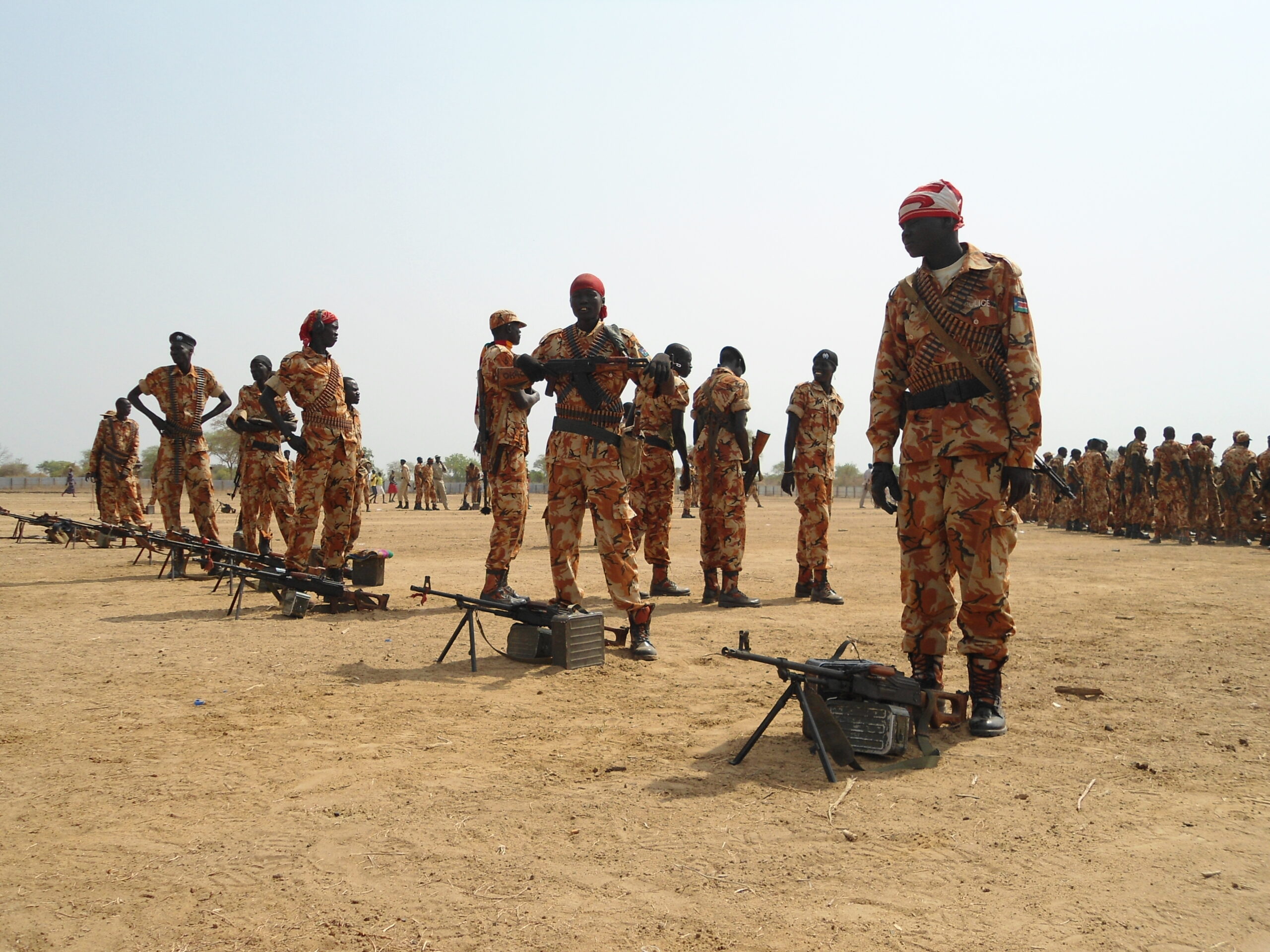South Sudan police general denies rape reports in Pibor
June 17, 2012 (BOR) – A South Sudanese police general has denied allegations of rape and abduction during a disarmament campaign conducted by the military in volatile Jonglei State.

Following clashes between the Luo Nuer and Murle tribes at the beginning of the year, a six week disarmament campaign in April and May was followed by a peace process attempting to end the cycle of cattle raiding, abductions and violence.
The United Nations Mission in South Sudan (UNMISS) said that they had received reports that earlier in June police in Jonglei had attacked women during continued attempts to collect weapons.
There are unconfirmed reports, UNMISS said, that on 11 June three women were abducted from Likuangole and another three from Manyabol in Pibor County, the home of the Murle tribe. The UN body also said that two children drowned in a river on 8 June when residents fled police shooting in the village of Likuangole.
“We are following up reports from (residents) that policemen are being accused of having conducted rape and abduction,” UNMISS spokesman Liam McDowall told Reuters on Friday.
The UN mission was “following up reports of quite serious outbreaks of disorder and we are supporting the South Sudanese authorities in their enquiries,” McDowall said.
SPLA DENIES KNOWLEDGE OF RAPES AND ABDUCTIONS
However, Brigadier General Mathiang Magordit told Sudan Tribune on Sunday that the SPLA had not received any reports of rape during the disarmament process in Pibor County.
“We have never heard about raping here. This a lie coiled up by some people somewhere”, Magordit said.
He said that, according to the rules governing Jonglei’s disarmament operation, rape cases are handled by arresting the accused and taking them to the court.
Magordit said that his soldiers worked in difficult conditions in Pibor County and were often attacked by local youths who had evaded the disarmament process.
“We have lost some of our important soldiers. Any time they move around, they are attacked by the armed youth who refuse to surrender their arms,” he said.
DISARMAMENT BY DETENTION OF RELATIVES
The SPLA general said they had developed a new tactic to force men to disarm. If a man is seen running away from the army with a weapon, the SPLA capture his relatives until “he surrenders the gun”, Magordit said.
Over 10,000 policemen and soldiers were deployed to Jonglei, South Sudan’s largest state, to oversee the disarmament process. Most have remained in the state to try and maintain stability and protect civilians.
Joshua Konyi, the Pibor County Commissioner told Reuters on Friday that policemen stationed in the area as part of the disarmament campaign took several women to Likuangole by force. The details were unclear, he added.
“Two ladies, one of 16 years and one of 13 years, were raped that night [11 June] by the armed forces. We don’t know whether they are police or soldiers,” he said.
“I don’t know the details of who raped those women but according to what we heard, information we got from Likuangole, the ladies themselves said (the men) had military uniforms. I’m not sure if they were police or SPLA (army) uniform.”
“They (also) took three women from Manyabol,” he said.
21 SOLDIERS DISMISSED FOR MISCONDUCT
Although he strongly denied the allegation of rape and abduction, General Magordit said that at least 21 officers from the disarmament had been dismissed due to alleged misconduct.
Some soldiers had gone absent without leave for over a month, neglecting their duties, Magordit told Sudan Tribune. Others were sacked for attempted to shoot their colleagues after minor quarrels.
Magordit said that the SPLA would remove unreliable and volatile individuals “so that we remain with those will do the job to the expected standard”.
South Sudan, after seven years of self-rule and just under a year of independence, following decades of conflict, is attempting to evolve a patch work of tribally and regionally aligned armed groups into a national army and police force.
The large proliferation of small arms in South Sudan are a result of the SPLA’s war with various Khartoum governments from 1983 until 2005. During that period many armed groups were aligned at different times to both the SPLA, which was then the main rebel group in South Sudan, and Khartoum’s Sudan Armed Forces (SAF), as well as other southern groups.
Smaller tribes, such as the Murle, were particularly targeted and armed by Khartoum during the civil war as a proxy to fight against SPLA. Since 2005, when, as part of the Comprehensive Peace Agreement (CPA), the political wing of the SPLA came to power in South Sudan, other armed groups have gradually been assimilated into SPLA, including the forces led by the former head of the Murle tribe, Ismeal Konyi.
SENIOR MURLE OFFICIAL BLAMED FOR INSECURITY
Ismeal Konyi, who is now a member of the upper house of the national parliament, the South Sudan Council of States, has the power to instruct the Murle to disarm, according to General Mathiang Magordit.
Magordit accused the former chief of the Murle of being behind the attacks and the tribe’s refusal to hand over their guns.
“Ismeal is very important to his people here. I am sure if he talks to his people to surrender their guns, surely they can respond quickly,” he said.
He accused Ismeal Konyi of deliberately spreading false information denying that the Murle were involved in violent cattle raids, while he was in charge of Pibor County.
“If you are the type who defend criminals, who are you?” Magordit said.
The Jonglei disarmament campaign was initiated by South Sudan’s President Salva Kiir after over 100,000 people were displaced by fighting between the Luo Nuer and Murle in at the end of 2011 and the beginning 2012.
(ST)
